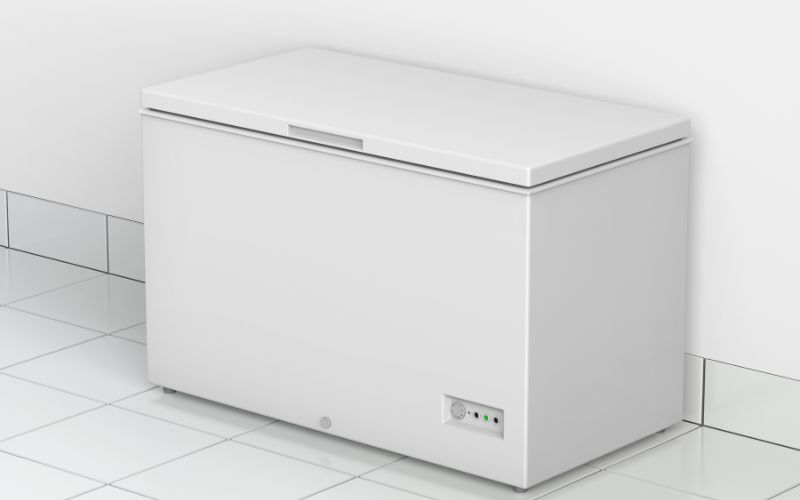Chest Freezer for Sale: A Comprehensive Guide
Introduction
At Chest Freezer for Sale, we understand the importance of reliable and efficient food storage solutions for households and businesses alike. Whether you’re looking to save money by buying groceries in bulk, preserve seasonal produce, or store home-cooked meals, a chest freezer is an indispensable appliance. In this comprehensive guide, we explore everything you need to know about chest freezers, from their benefits and types to buying considerations and maintenance tips. Let us help you make an informed decision to meet your storage needs and enhance your daily life.
Types of Chest Freezers
Small Chest Freezers
Small chest freezers are ideal for individuals or small families who need additional freezer space. They typically range from 3 to 7 cubic feet in capacity.
Medium Chest Freezers
Medium chest freezers, ranging from 7 to 14 cubic feet, are perfect for medium-sized families or those who like to bulk-buy groceries.
Large Chest Freezers
Large chest freezers, exceeding 14 cubic feet, are suitable for large families or anyone who needs significant freezer space for long-term storage.
Energy-Efficient Chest Freezers
These freezers are designed to minimize energy consumption, helping reduce electricity bills while being environmentally friendly.
Manual Defrost Chest Freezers
Manual defrost freezers require periodic defrosting, which can be labor-intensive but are generally more affordable.
Frost-Free Chest Freezers
Frost-free models prevent ice buildup automatically, reducing maintenance but typically cost more upfront.
Features to Consider
Size and Capacity
Consider the amount of space available in your home and your storage needs. Chest freezers come in various sizes, and it’s essential to choose one that fits your lifestyle.
Energy Efficiency
Look for models with the Energy Star label, which indicates superior energy efficiency.
Temperature Control
Models with adjustable temperature controls offer more flexibility in food storage.
Organization Options
Baskets, dividers, and shelves help keep your freezer organized and make it easier to find items.
Noise Level
Some freezers operate more quietly than others. Consider this if your freezer will be placed in a living area.
Build Quality
Check for durable materials and construction to ensure longevity and performance.
Benefits of Chest Freezers
Cost Savings
Buying in bulk and taking advantage of sales can lead to significant grocery savings.
Food Preservation
Chest freezers allow you to store large quantities of food for long periods, reducing waste.
Convenience
Having extra freezer space means fewer trips to the grocery store.
Emergency Preparedness
Chest freezers can be stocked with emergency food supplies, providing peace of mind during natural disasters or other emergencies.
Common Uses of Chest Freezers
Storing Bulk Purchases
Buying meat, vegetables, and other staples in bulk can save money and time.
Freezing Home-Cooked Meals
Prepare meals in advance and freeze them for quick and easy future meals.
Seasonal Storage
Preserve seasonal fruits and vegetables to enjoy year-round.
Storing Game Meat
Hunters can use chest freezers to store game meat efficiently.
Emergency Storage
Keep a stockpile of essentials in case of emergencies.
Buying Guide
Budget Considerations
Set a budget before shopping and consider long-term savings from energy-efficient models.
Brand Reputation
Research brands known for reliability and customer satisfaction.
Warranty and Support
Check for warranties and after-sales support to ensure peace of mind.
Customer Reviews
Read reviews from other buyers to gauge performance and satisfaction.
In-Store vs. Online Purchase
Consider the pros and cons of buying in-store (easier returns, physical inspection) versus online (convenience, potentially better deals).
Installation and Setup
Choosing a Location
Place your chest freezer in a cool, dry area with sufficient ventilation.
Leveling the Freezer
Ensure the freezer is level to prevent strain on the compressor.
Power Supply
Make sure the freezer is plugged into a dedicated outlet to avoid electrical issues.
Initial Setup
Allow the freezer to stand upright for a few hours before plugging it in, then let it run empty for 24 hours to reach the desired temperature.
Maintenance Tips
Regular Defrosting
Manual defrost models require regular defrosting to maintain efficiency.
Cleaning
Periodically clean the interior with a mild detergent and water solution.
Checking the Seal
Ensure the door seal is tight to prevent cold air from escaping and wasting energy.
Temperature Monitoring
Regularly check the temperature to ensure it stays within the safe range for food storage.
Troubleshooting Common Issues
Freezer Not Cooling
Check the power supply and thermostat settings. If the problem persists, consult a technician.
Excessive Frost Build-Up
Ensure the door seal is tight and the freezer is not overloaded.
Strange Noises
Unusual noises could indicate a problem with the compressor or fan. Contact a professional if necessary.
Power Outages
Keep the freezer closed to maintain temperature. Use a generator if possible during extended outages.
Expert Insights
Benefits of Energy-Efficient Models
According to energy experts, choosing an Energy Star-rated chest freezer can significantly reduce electricity bills over the appliance’s lifetime.
Tips from Professional Organizers
Professional organizers suggest using baskets and labels to keep your chest freezer tidy and make finding items easier.
Frequently Asked Questions
How Often Should I Defrost My Chest Freezer?
Manual defrost models should be defrosted every 6-12 months or when the frost build-up exceeds a quarter-inch.
Can I Keep My Chest Freezer in the Garage?
Yes, but ensure it is rated for garage use and can handle extreme temperatures.
What is the Average Lifespan of a Chest Freezer?
With proper maintenance, a chest freezer can last 15-20 years.
How Much Energy Does a Chest Freezer Use?
Energy consumption varies by model and size, but energy-efficient models can use as little as 200-400 kWh per year.
Are Chest Freezers Safe for Long-Term Food Storage?
Yes, as long as the temperature remains at or below 0°F (-18°C), food can be safely stored for long periods.
Conclusion
Investing in a chest freezer can offer significant benefits, from cost savings to convenience in food storage. By understanding the different types, features, and maintenance requirements, you can make an informed purchase that meets your needs and enhances your home. Whether you’re a bulk buyer, a home cook, or someone who likes to be prepared, a chest freezer is a practical and valuable addition to your household.






